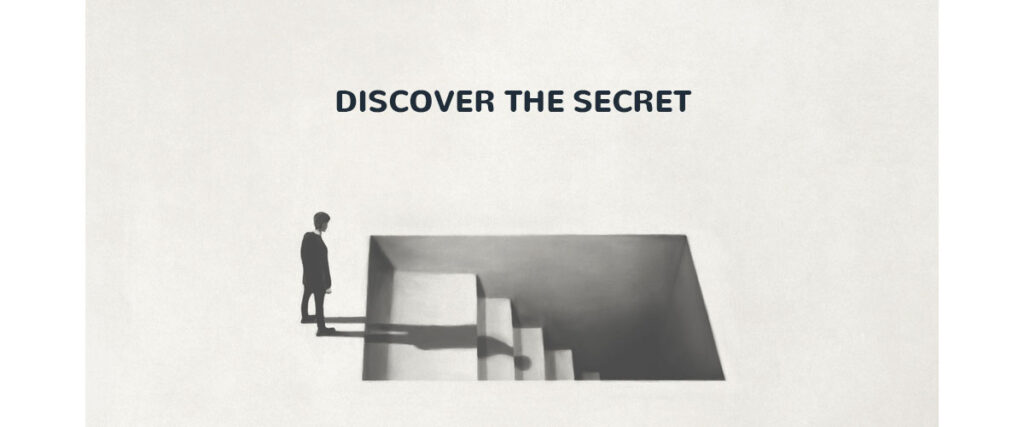Real Growth is Two-Pronged – Individual and Collective
Our basic biological or psychological needs are linked with nature’s plan to maintain the life of mankind. Thus we can regard all human evolution as bipolar or two-pronged, because what contributes to individual growth also contributes to the overall development of human life. Human evolution simultaneously progresses on two levels—individual development and collective development.

The beauty of life, to me, is that if we are true to ourselves then the pursuit of personal objectives will contribute to the accomplishment of social aims and ends. There seems a mystifying law at work in the collective human organism that appropriates the fruits of its individual elements for the development and growth of the life of the whole. Simply put, the fruits of actions resulting from the biological need to avoid death, disease, and misery benefit, ultimately, the whole of humanity. Beyond this come the purposes that rise above the syntax of the basic individual stimulus.
The things around us do not of themselves divulge their significance to us. We must endeavour to discover all that for ourselves. It’s only when we discover the secret that lies locked in the bosom of things that we can attempt to define our purpose. And nature is our teacher in this process. All hope for self-improvement begins with our desire to discover the secret of things and the laws that govern them.

The rational faculty that man is gifted with allows us to discover the mysteries of the universe. We must each commit intellectual effort to determine our real place in the scheme of things and transform the world, taking into account our ideals. This task is not unrelated to man’s nature or external to our toil, but is an essential part of life itself.
Living meaningfully entails interpreting our environs, including the physical circumstances and communal and historical surroundings in which we find ourselves. With the application of our rational abilities to the issues presented by our environment, we gradually discover our right relationship with the external world and shape our convictions about what we ourselves are in the midst of the things that surround us. It is by articulating these convictions that we can hope to feel at home and impress a personal pattern on the change that is taking place in the world around us.
This ecology that we live in is for us like a shell is for a snail. It is a blended fibre of many filaments, as our entire heritage—our race, culture, and history—represents a minute ledge in the range of human evolution. As that sage Shakespeare explained, the world is a stage in which we have to display our talent while playing our part, without any say in the beginning or the end of the play. The understanding of one’s part is possible only through the gift of vision bestowed upon us.

British academic William Macneile Dixon rightly wrote in The Human Situation (1937):
The most astonishing thing about the human being is not so much his intellect and bodily structure, profoundly mysterious as they are. The astonishing and least comprehensible thing about him is his range of vision; his gaze into the infinite distance; his lonely passion for ideas and ideals, far removed from his material surroundings and animal activities…. The inner truth is that every man is himself a creator, by birth and nature, an artist, an architect and fashioner of worlds.
It is this capacity for being ‘the architect and fashioner of worlds’ that I feel is our primary task in the world. Our ability for what we may make of ourselves depends more on our own effort than on anything else. It’s essential to remember the truth of two-pronged evolution. For example, if you are following the urge of your conscious drive to earn your living, you are also participating in the preservation of mankind. If you think deeply, you will realize that all truthful, productive, and decent individual life has a gainful influence on the lives of all of our fellow humans.
Shakespeare has Polonius, perhaps unwittingly, state it beautifully: ‘To thy own self be true and then it would follow, as night follows the day, thou canst not be false to anyone else.’ There is no clash of interests between one’s motivation for one’s own growth and society’s desire for higher purposes to prevail. Our individual and collective lives have the same focal point; by playing our part well, we each add to the quality of the society of which we are a part.

In my corporate career and in observation of business around the world, I have seen that the businesses that thrive in the long run are those which best ensure this two-pronged growth. To me a large part of the recent misery of financial institutions has been wrought by an organizational philosophy that allowed a few so-called star performers to tower above their organizations’ collective ethos. In most instances, the same individuals or businesses which were considered far superior to the organization in general and were disproportionately paid brought their organizations down. The absence of a symbiotic two-pronged evolution hurts every organism.
The best way for individuals to serve the total life is to relentlessly pursue our own individual development to bring out that which is best in us. Therefore, the value of securing our life’s development cannot be overrated. Totalitarian systems, like communism—based on the idea that individuals are not an end-in-themselves but a means for fusion in the universal benevolence of the state or another assemblage of people—are bound to fail. We cannot be productively herded in disregard to our real place in the scheme of things, which alone brings out the best there is in us.
All forms of regimentation and of standardized human existence are bound to eventually shipwreck against the individual dignity and value of man. We are artists; we are reformers; we are law-givers. We continually strive to invigorate and modernize society to ensure the smooth unfolding and healthy progress of its processes, laws, and institutions.
Human society is always in flux. It is well served by a healthy balance of old order and change that helps it move forward in response to the challenges posed by changing conditions. This can only be achieved if we are capable of rationally examining the various possibilities open to us.
Nothing is so decisive for growth as the development of critical faculty in man, which infuses the spirit of free inquiry. For that we must endeavour to liberate the human brain from the burden of custom, ritual, bias, and intolerance, in order to enable man to face life without prejudices or fixed ideas. In the age we live in, nothing attends to the fullness of life except the forces of rational thought. They alone equip us to judge the relative value of things and to do the right thing under a given circumstance.
The world today is ruled by thought. The development of scientific and intellectual thought over the last three centuries is practically a story of the victory of pure intellect over primal ways of dealing with the problems posed by our environment. The progress of human knowledge in its contribution to life is now increasingly faster, because of the abundance of refined intellect as an instrument of discovery and innovation and because we are able to free it from the pressure of immediate existential needs. And this unburdened surplus of intellect, powered by rational thought, has carried the constructive enterprise of modern civilization to heights that would have been unimaginable a few hundred years ago.


